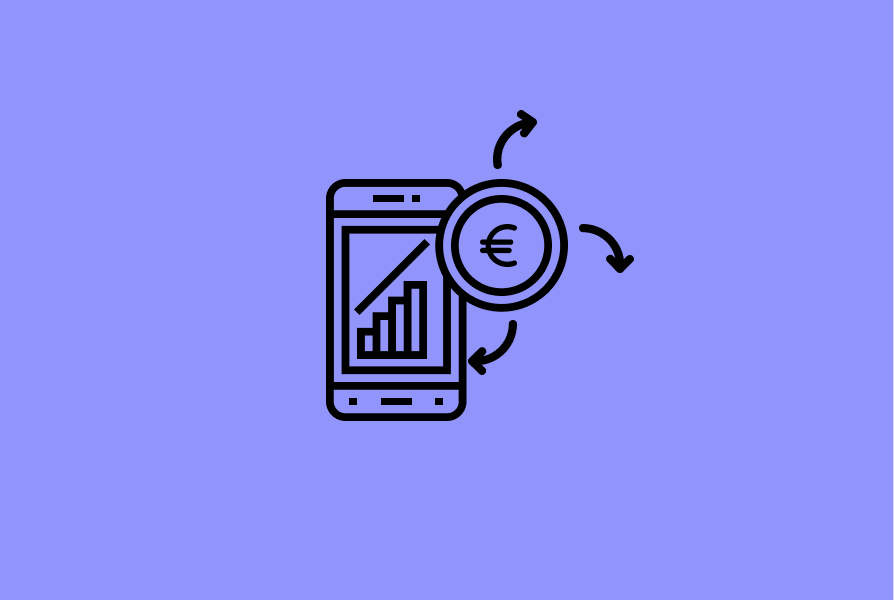When you are new to investing, it's easy to feel lost in a jungle of products. And you know what? You're not wrong! However, if you want to preserve your initial investment while bearing a low level of risk, some products are more suitable than others. In this article, Birdee explains which solutions are best for you, from least to the most risky.
Birdee has identified five predefined investor profiles (defensive, moderate, stable, protective and dynamic), which each determine the level of risk you are willing to take based on your objectives.
This article is specifically directed at those considered "defensive", or "cautious" investors. But don't be fooled! Even if your risk aversion is high, you shouldn't give up on a return and deny yourself financial performance. On the contrary! With eurozone consumer prices rising by 3.4% in September compared to a year earlier (a 13-year high...), it is crucial you invest in products that will maintain your purchasing power in the short, medium and long term.
REGULATED ACCOUNTS
These products go by different names: Livret A and Livret de Développement Durable (Sustainable Development Savings Account) in France, regulated accounts in Belgium... They are a solid fallback if you take a financial hit, allowing you to withdraw your money at any time. But they have one MAJOR flaw: their return on investment. With a return of 0.50% for the French products and 0.11% for the Belgian equivalents, these accounts are ultimately losing money. With inflation now running at 3.4%, the writing's on the wall. Think of them as "a little safe" for back-up savings that you can tap into whenever you need.
-
Advantages: Availability of funds, minimal risk of capital loss, no taxation.
-
Disadvantage: Capped deposits.
-
Return on investment: Lower than inflation (0.50% maximum today)
-
Fluctuations: minimal
LIFE INSURANCE
This sort of investment is often presented as the "Swiss Army knife" of savings in France. And we have to admit, it ticks all the boxes: availability of funds, preparation for a property purchase, transmission of assets, attractive tax framework. In short, life insurance has it all? Well, not quite. From a strict returns perspective, life insurance in euro funds has seen its performance melt away like snow in spring (1.30% in 2020 according to the FFA) and it could fall below 1% in 2021.
The "smart solution" - the one that Birdee recommends - is to invest in a unit-linked life insurance policy. The risks are a little higher, but it might be the right choice to diversify a small fraction of your portfolio.
And you don't have to be "rich" to open an account. The life insurance we offer to our French clients is available from €50, just like our securities accounts, with a management fee of 1%, making it one of the cheapest managed accounts on the market. This way you can invest in index funds or ETFs that replicate the performance of a stock market or sector index. Bearing in mind that the stock market always rises in the long run, your portfolio will do at least as well!
-
Advantages: Availability of funds, minimal risk of capital loss on the euro funds, managed funds.
-
Disadvantage: Higher risk of capital loss on the ETF envelope.
-
Fluctuations: minimal on the euro funds, higher (but controllable) on unit-linked products.
-
Return on investment: lower than inflation on the euro funds, close to inflation (3%) for a profile considered cautious in 2020.
THE SAVINGS PLAN IN SHARES
The stock market is open to all investors, even those with a cautious profile. Yes, it is! And the figures prove it: comparing investments over the 30 years between 1988 and 2018, the French website Le Revenu concluded that shares with dividends gained 1,352% compared to the initial investment, while the Livret A only made 135%. However, even if this asset class is the most profitable, the equity markets can scare off the more risk-averse.
This is where the PEA comes in since it allows you to use a management mandate that takes your risk profile and your investment horizon into account. Birdee can offer a Birdee Securities Account envelope composed, as for life insurance, of SRI-labelled, responsible ETFs that use ESG criteria (environmental, social and governance). Efficient financing that makes sense of your money!
-
Advantages: Diversification of investments, access to diversified European investments.
-
Disadvantage: Higher taxation in the event of withdrawals before 5 years, investment to be planned over time.
-
Return on investment: +2.42% in H1 2021 for the defensive Birdee portfolio and +11.31% for the dynamic portfolio.
-
Fluctuations: real, subject to changes in the financial markets. Nevertheless, over time the risk/return trade-off is clearly positive.
SHARES OR BONDS ?
-
A share entitles you to a fraction of a company's capital and to dividends.
-
A bond is a claim, i.e. you lend money (to a government, a national or private company) in exchange for a predetermined payment.
Shares are more volatile, but bonds must be held until their redemption date since the vast majority of them have a finite life, unlike stocks which are not time-limited.
Our portfolios optimally combine different asset classes, including shares and bonds. The main advantage is that, thanks to delegated management, Birdee takes care of everything. You can use the application to monitor the evolution and performance of your portfolio each day.
In conclusion, if you want to maintain your purchasing power in these times of rising inflation, our advice is to invest part of your savings in the financial markets, either via life insurance or a securities account. The stock market is not only for highly experienced investors, even the most risk-averse profiles can make their money grow and build up capital for later.
Click on this link to find out more about our responsible investment solutions and start building capital now!
Good luck!
 English
English








